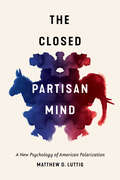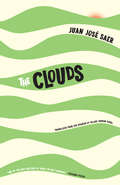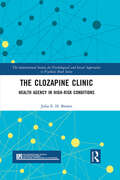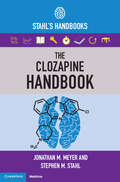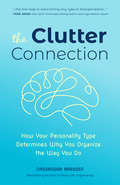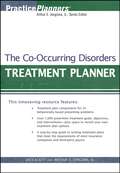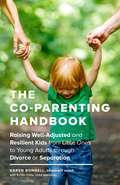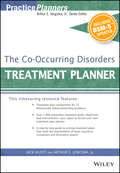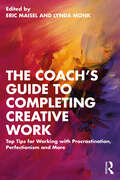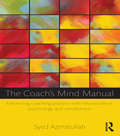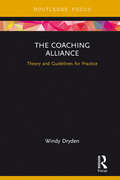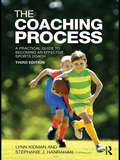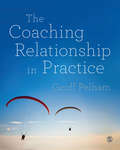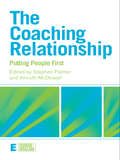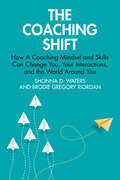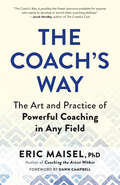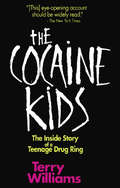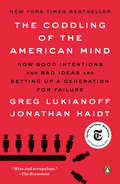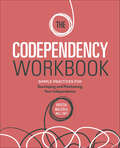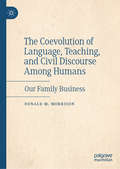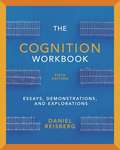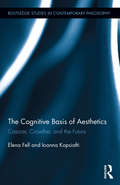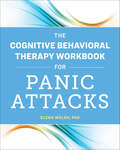- Table View
- List View
The Closed Partisan Mind: A New Psychology of American Polarization
by Matthew D. LuttigThe Closed Partisan Mind traces the roots of partisan polarization to psychological closed-mindedness in the electorate and the changing perception of politics created by polarized political leaders and the new media environment. American politics today can be defined by the intense and increasingly toxic divide between Democrats and Republicans. Matthew D. Luttig explores why so many Americans have endorsed this level of political conflict.Luttig illustrates how the psychological need for closure leads people, regardless of whether they identify as Democrat or Republican, to express more polarized political attitudes. This association between closed minds and partisan polarization is a new phenomenon and can be traced to broader changes in American society, such as the creation of ideologically distinct political parties and a fragmented media environment. These developments have simplified politics into a black-or-white, us-versus-them conflict—making politics appeal to those with closed minds. Today, strong partisans do not just cheer for their political party to win elections. Instead, more akin to religious true believers, strong partisans use their affiliation as a means of understanding right and wrong, friend and enemy, true and false. The Closed Partisan Mind reveals that these dynamics have manifested in both a new type of partisanship and a new type of partisan. The emergence of this new closed partisanship illustrates the dangers that polarization has wrought on society, politics, and the minds of Americans.
The Cloud Chamber
by Joyce MaynardWhen Nate Chance arrives home from school, he sees two police cars and an ambulance in his yard. Before his mother can get him and his little sister, Junie, inside, Nate and Junie witness their father, blood pouring down his face, being led by two police officers into an ambulance. He has tried to kill himself. Home quickly becomes a different place. Junie stays curled up in front of the TV; Nate's mom retreats inside herself; and the rumor of mental illness makes Nate a social pariah at school. Only the promise of winning the science fair holds any hope of happiness for Nate. He's building a cloud chamber, the project that he and his dad dreamed of working on together. Maybe if he can build it, Nate can give his father something that will help him feel better and finally come home.
The Clouds
by Juan José Saer Hilary Vaughn Dobel"Saer is one of the best writers of today in any language."--Ricardo Piglia"What Saer presents marvelously is the experience of reality, and the characters' attempts to write their own narratives within its excess."--BookforumIn modern-day Paris, Pichón Garay receives a computer disk containing a manuscript--which might be fictional, or could be a memoir--by Doctor Real, a nineteenth-century physician tasked with leading a group of five mental patients on a trip to a recently constructed asylum. Their trip, which ends in disaster and fire, is a brilliant tragicomedy thanks to the various insanities of the patients, among whom is a delusional man who greatly over-estimates his own importance and a nymphomaniac nun who tricks everyone--even the other patients--into sleeping with her.Fascinating as a faux historical novel and written in Saer's typically gorgeous, Proustian style, The Clouds can be read as a metaphor for exile--a huge theme for Saer and a lot of Argentine writers--as well as an examination of madness.Juan José Saer was the leading Argentinian writer of the post-Borges generation. The author of numerous novels and short-story collections (including Scars and La Grande), Saer was awarded Spain's prestigious Nadal Prize in 1987 for The Event. Five of his novels are available from Open Letter Books. Hilary Vaughn Dobel has an MFA in poetry and translation from Columbia University. She is the author of two manuscripts and, in addition to Saer, she has translated work by Carlos Pintado.
The Clozapine Clinic: Health Agency in High-Risk Conditions (The International Society for Psychological and Social Approaches to Psychosis Book Series)
by Julia BrownThis book is the first ethnography of the little-known world of clozapine clinics in Australia and the United Kingdom. Anthropologist Julia Brown engages with the narratives of people living in extreme health circumstances to challenge some of the assumptions made about clozapine treatment and to explore what it means to be diagnosed with ‘treatment-resistant schizophrenia.’ Clozapine is a gold standard but controversial treatment for psychosis that requires lifelong monitoring to reduce fatality caused by clozapine side effects. Focusing on the social world of the clozapine clinic and based on the author’s own extensive research, this book explores what it means to live with the interpersonal challenges of psychosis and trauma, the risks of multi-morbidity, and how clozapine clients can experience meaningful control over their health. Brown uses her findings to point to the practical clinical implications of clozapine clients being given more recognition and accountability, and to explore how health agency relates to moral agency. The Clozapine Clinic particularly highlights the importance of investing in continuity of healthcare and is an essential read for caregivers who work with sufferers of psychosis as well as academics and policymakers focused on mental health.
The Clozapine Handbook: Stahl's Handbooks (Stahl's Essential Psychopharmacology Handbooks)
by Stephen M. Stahl Jonathan M. MeyerReal-world and clinical trial data support that clozapine is the only effective antipsychotic for treatment resistant schizophrenia and other severe mental illnesses. Clozapine also reduces rates of suicidality, psychiatric hospitalization and all-cause mortality. However, clozapine is underutilized for 2 reasons: misunderstandings of its efficacy benefits and misapprehension of, limited knowledge or misinformation about the management of treatment related risks and adverse effects. In response to worldwide efforts to promote clozapine use, this user-friendly handbook provides clinicians with evidence-based approaches for patient management as well as logical approaches to the management of clinical situations and adverse effects. It outlines clearly the rationale for specific management decisions and prioritises the options based on this logic. This handbook is designed for use by clinicians worldwide and is essential reading for all mental health care professionals.
The Clutter Connection: How Your Personality Type Determines Why You Organize the Way You Do
by Cassandra AarssenYou&’re not messy—you just organize differently. Learn to make your natural habits work for you with this bestseller by the host of HGTV&’s Hot Mess House! Organizing isn&’t one size fits all. By discovering your unique Organizing Personality Type, you can find the most effective strategies for a more productive and clutter-free life. The Clutter Connection examines and explains how different brain types directly relate to organization and clutter. Cassandra Aarssen smashes the stereotype that some people are &“naturally messy&” and offers insight and real-life solutions based on your unique personal organizing style. The Clutter Connection will help you get organized, be more productive and finally understand the why behind your clutter. Find out what type of Clutterbug you are and learn: · The four different organizing styles and how they relate to each other · How motivation and happiness can be directly affected by our space · The &“3P&’s&”─Productivity, procrastination, and perfectionism, and how they&’re connected to your unique organizing style · How you can finally become clutter-free simply by knowing yourself better
The Co-Occurring Disorders Treatment Planner
by Arthur E. Jongsma Jr. Jack KlottThe Bestselling treatment planning system for mental health professionalsThe Co-Occurring Disorders Treatment Planner provides all the elements necessary to quickly and easily develop formal treatment plans that satisfy the demands of HMOs, managed care companies, third-party payors, and state and federal review agencies. A critical tool for mental health professionals treating patients coping simultaneously with mental illness and serious substance abuse Saves you hours of time-consuming paperwork, yet offers the freedom to develop customized treatment plans Organized around 25 main presenting problems with a focus on treating adults and adolescents with alcohol, drug, or nicotine addictions, and co-occurring disorders including depression, PTSD, eating disorders, and ADHD Over 1,000 well-crafted, clear statements describe the behavioral manifestations of each relational problem, long-term goals, short-term objectives, and clinically tested treatment options Easy-to-use reference format helps locate treatment plan components by behavioral problem or DSM-IV-TR diagnosis Includes a sample treatment plan that conforms to the requirements of most third-party payors and accrediting agencies (including HCFA, JCAHO, and NCQA)
The Co-Parenting Handbook: Raising Well-Adjusted and Resilient Kids from Little Ones to Young Adults through Divorce or Separation
by Karen Bonnell Kristin LittleThe Co-Parenting Handbook helps parents confidently take on the challenges of guiding children through divorce or separation and raising them skillfully in two homes. Addressing parents’ questions about the emotional impact of separation, conflict, grief, and recovery, the authors provide a road map for all family members to safely navigate through separation/divorce and beyond. Through tested and reassuring guidance, parents will discover how to move from angry, hurt partners to constructive, successful co-parents who are able to put their children’s needs first. Chock-full of strategies to help resolve day-to-day issues, create boundaries, and establish guidelines, this handbook will help ensure kids and co-parents thrive.
The Co-occurring Disorders Treatment Planner, With Dsm-5 Updates
by Arthur E. Jongsma Jack KlottThe Co-Occurring Disorders Treatment Planner providestreatment planning guidelines and an array of pre-written treatmentplan components for treating patients copingsimultaneously with mental illness and serious substanceabuse-literally millions of Americans. Geared equally to bothaddictions counselors and other therapists, the book includestreatment guidelines for for adults and adolescents; for peopledealing with alcohol, drug, or nicotine addictions; for people withdepression, PTSD, eating disorders, ADHD, and a large range ofother common illnesses. Table of Contents: Practice Planner® Series Preface Acknowledgements Introduction Acute Stress Disorders with Sedative, Hypnotic, AnxiolyticAbuse Adolescent Asperger's Disorder with Alcohol Abuse Adolescent Attention-Deficit/Hyperactivity Disorder withCannabis Abuse Adolescent Conduct Disorder with Alcohol Abuse Adult Attention-Deficit/Hyperactivity Disorder with CocaineDependence Anorexic Female with Amphetamine Dependence Antisocial Personality Disorder with PolysubstanceDependence Avoidant Personality Disorder with Cannabis Dependence Bipolar Disorder Female with Alcohol Abuse Bipolar Disorder Male with Polysubstance Dependence Borderline Female with Alcohol Abuse Borderline Male with Polysubstance Dependence Bulimic Female with Alcohol Abuse Chronic Medical Illness with Sedative, Hypnotic, orAnxiolytic Dependence Chronic Undifferentiated Schizophrenia with AlcoholDependence Depressive Disorders with Cannabis Dependence Depressive Disorders with Alcohol Abuse Depressive Disorders with Pathological Gambling Dissociative Disorders with Cocaine Abuse Generalized Anxiety Disorder with Cannabis Abuse Intermittent Explosive Disorder with Cannabis Abuse Obsessive-Compulsive Disorder with Cannabis Abuse Paranoid Schizophrenia with Polysubstance Dependence Posttraumatic Stress Disorder with Polysubstance Dependence Social Phobia with Alcohol Abuse Appendix A: Bibliotherapy Suggestions Appendix B: Professional Bibliography Appendix C: Index of DSM-V™ CodesAssociated with Presenting Problems
The Coach's Guide to Completing Creative Work: Top Tips for Working with Procrastination, Perfectionism and More
by Eric Maisel Lynda MonkThis book brings together 38 creativity coaches from around the world to offer coaches, therapists, creatives and clients accessible and practical tools to get their creative work done. Curated by two leading creativity coaches, these chapters seek to help coaches and clients alike tackle common challenges that all creatives face when finishing a project. Chapters cover topics such as procrastination, failure, accountability, perfectionism, mindfulness, the importance of support, perseverance and more, with each section finishing with tips for both clients and coaches that can be used in sessions. Filled with rich case studies and true stories from creativity coaches throughout, this book addresses the current issues of our times, such as the distractions of social media, remote working and the effects of the COVID-19 pandemic. Applicable to a range of creative disciplines, this book is essential reading for coaches, therapists and their creative clients looking to complete their creative work efficiently and effectively.
The Coach's Mind Manual: Enhancing coaching practice with neuroscience, psychology and mindfulness
by Syed AzmatullahThe Coach’s Mind Manual combines the latest findings from neuroscience, psychology, and mindfulness research to provide an accessible framework to help coaches and leadership development specialists improve their awareness of the mind, enhancing their coaching practice. Syed Azmatullah explains how such knowledge can be used to guide clients on a journey of self-discovery, facilitating transformational changes and enriching their performance and personal lives. Part One considers the mind’s management committee, the cerebral cortex, and how its contrasting functions can be accessed to improve problem solving skills. Part Two considers the mind’s middle management, the limbic system, balancing executive direction with our social and emotional needs, driving motivation around core values. Part Three examines how the environment, via the body, influences our mental infrastructure at various stages in life, guiding the selection of interventions. Part Four looks at interpersonal dynamics and how to maximise team performance. Part Five considers the power of collaboration for generating the culture needed to improve the sustainability of our global community. Each section contains self-reflection exercises and experiential role-play to help clients derive benefit from their new personal insights. Coaches are encouraged to combine the broad range of concepts presented with their own experience, creating a contextually-driven coaching process. By focusing on the mind as the target for coaching interventions Azmatullah establishes a comprehensive framework for achieving transformational change. The Coach’s Mind Manual is ideal for all professionals engaged in adult development including executive coaches, business coaches, human resource development professionals, leadership development professionals, management consultants and organisational development professionals.
The Coaching Alliance: Theory and Guidelines for Practice (Routledge Focus on Coaching)
by Windy DrydenWindy Dryden’s pluralistic approach to coaching informs this uniquely straightforward guide to the coaching alliance. Drawing on examples from Dryden’s own practice, the book explores the four specific domains of the alliance: bonds, views, objectives/goals, and tasks. Dryden explains how these domains are inter-related, and how all four have an impact on the collaborative, negotiated relationship between coach and coachee. The Coaching Alliance is a clearly written, accessible guide, with one chapter dedicated to each of the four domains. It examines each domain at different stages in the coaching process and includes key points and questions for coaches to consider in sessions with clients. By taking an alliance perspective on coaching, the coach is encouraged to think clearly and constructively about building a working relationship with their coachee, clarifying views, setting goals and completing tasks. Including a wealth of practical information, this concise book will be essential for anyone working with clients in a coaching capacity.
The Coaching Process: A Practical Guide to Becoming an Effective Sports Coach
by Stephanie J. Hanrahan Lynn KidmanIn this fresh and engaging introduction to sports coaching, Lynn Kidman and Stephanie Hanrahan guide students through the coaching process. Focusing on the practical aspects of sports coaching, the book helps students to develop their basic technical skills as well as strategies for working with individual and team athletes, and to plan and implement effective coaching sessions. The book develops an "athlete-centred approach" to sports coaching, by which athletes take ownership of their learning, in turn strengthening their abilities to retain key skills and to make effective decisions during competition. Useful pedagogical features in each chapter, such as real life case studies, activities, self-reflection questions, and summaries of current research and best practice, encourage reflective practice and help student coaches to develop and extend their coaching techniques and philosophies. The Coaching Process is invaluable reading for any student starting a sports coaching course at college or university, and for any coach working with athletes or children in sport who wants to improve their practical skills.
The Coaching Relationship in Practice
by Geoff PelhamThis book explores that which is at the very heart of coaching: the coach-coachee relationship. Considering the relationship at each stage of the coaching process, it will equip your trainees with the necessary skills and knowledge for building and maintaining successful coaching relationships every step of the way. In clear and friendly terms the book simplifies complex issues including the practicalities of getting started, the intricacies of coaching across cultures and of coaching from within an organisation, and how to make the most of supervision. A crucial chapter on evidence-based practice considers the importance of research in the area and how to use the evidence-base to support professional coaching practice. Reflective questions, examples, implications for practice and recommended reading are included in every chapter, encouraging your trainees to consider how they might bring themselves to the coaching relationship.
The Coaching Relationship in Practice
by Geoff PelhamThis book explores that which is at the very heart of coaching: the coach-coachee relationship. Considering the relationship at each stage of the coaching process, it will equip your trainees with the necessary skills and knowledge for building and maintaining successful coaching relationships every step of the way. In clear and friendly terms the book simplifies complex issues including the practicalities of getting started, the intricacies of coaching across cultures and of coaching from within an organisation, and how to make the most of supervision. A crucial chapter on evidence-based practice considers the importance of research in the area and how to use the evidence-base to support professional coaching practice. Reflective questions, examples, implications for practice and recommended reading are included in every chapter, encouraging your trainees to consider how they might bring themselves to the coaching relationship.
The Coaching Relationship: Putting People First (Essential Coaching Skills and Knowledge)
by Stephen Palmer Almuth McDowallThe Coaching Relationship discusses how we can integrate process perspectives such as the quality of the coach-coachee relationship, and professional perspectives including the influences of training and supervision, for more effective outcomes. Stephen Palmer and Almuth McDowall bring together experts from the field of coaching to discuss different aspects of the coach-coachee relationship, topics covered include: the interpersonal perspective the role of assessment ethical issues cultural influences issues of power. The book also includes a chapter on the interpersonal relationship in the training and supervision of coaches to provide a complete overview of how the coaching relationship can contribute to successful coaching Illustrated throughout with case studies and client dialogue, The Coaching Relationship is essential reading for practicing coaches and coaching psychologists wishing to learn more about the interpersonal aspects of coaching.
The Coaching Shift: How A Coaching Mindset and Skills Can Change You, Your Interactions, and the World Around You
by Brodie Gregory Riordan Shonna D. WatersThe Coaching Shift: How A Coaching Mindset and Skills Can Change You, Your Interactions, and the World Around You offers practical guidance on how to adopt a coaching mindset and how to build a coaching skill set to unlock better communication, stronger relationships, and high performance in others. Accessible and practical, the book draws on research from coaching, neuroscience, cognitive psychology, social psychology, and industrial-organizational psychology to provide the best science-based practices that can be applied in work and life. It presents core coaching skills that anyone can develop and use to improve their own emotions, thoughts, behaviors, and interactions with others. It uses levels of analysis to help readers think about key concepts first in relation to themselves, and then in 1:1 interactions, group and team dynamics, organizational-level impact, and beyond. The book offers specific and tangible advice for readers to develop their coaching and communication skills, while also developing a deeper understanding of themselves. The Coaching Shift, with its clear tone, anecdotal references, and practical application, will be essential reading for coaches in practice and in training, and for academics and students of coaching and coaching psychology. These concepts and practices are also relevant for anyone who wants to have more effective interactions with others.
The Coach’s Way: The Art and Practice of Powerful Coaching in Any Field
by Eric MaiselTHE ULTIMATE GUIDE FOR PROFESSIONAL COACHES AND SELF-COACHES In this first-of-its-kind book, a revered master coach explains exactly how coaches can conduct meaning-filled sessions — and how clients can best benefit from the coaching they receive. Eric Maisel presents thirteen weeks of short daily lessons where you’ll learn the nuts and bolts of coaching — what to say when, how to ask questions, and crucially, how to manifest the spirit of coaching. Maisel guides you to: • understand yourself so that you can better understand others. • prep for coaching with a deep awareness of your and your clients’ goals and mission. • ask quality questions, handle defensiveness, and grapple with limited progress. • cheer and encourage to get action and results. Supremely practical, each of Maisel’s lessons ends with exercises and a journal prompt. The result is an easy-to-use, field-tested guide for current coaches and coaches in training (as well as managers, mentors, and teachers) and an invaluable resource for anyone working with a coach or thinking about working with one.
The Cocaine Kids: The Inside Story Of A Teenage Drug Ring
by Terry WilliamsSince 1982, sociologist Terry Williams has spent days, weeks, and months "hanging out” with a teenage cocaine ring in cocaine bars, after-hours clubs, on street corners, in crack houses and in their homes. The picture he creates in The Cocaine Kids is the story behind the headlines. The lives of these young dealers in the fast lane of the underground economy emerge in depth and color on the pages of this book.
The Coddling of the American Mind: How Good Intentions and Bad Ideas Are Setting Up a Generation for Failure
by Jonathan Haidt Greg LukianoffSomething is going wrong on many college campuses in the last few years. Rates of anxiety, depression, and suicide are rising. Speakers are shouted down. Students and professors say they are walking on eggshells and afraid to speak honestly. How did this happen? <P><P>First Amendment expert Greg Lukianoff and social psychologist Jonathan Haidt show how the new problems on campus have their origins in three terrible ideas that have become increasingly woven into American childhood and education: what doesn’t kill you makes you weaker; always trust your feelings; and life is a battle between good people and evil people. These three Great Untruths are incompatible with basic psychological principles, as well as ancient wisdom from many cultures. They interfere with healthy development. Anyone who embraces these untruths—and the resulting culture of safetyism—is less likely to become an autonomous adult able to navigate the bumpy road of life. <P><P> Lukianoff and Haidt investigate the many social trends that have intersected to produce these untruths. They situate the conflicts on campus in the context of America’s rapidly rising political polarization, including a rise in hate crimes and off-campus provocation. They explore changes in childhood including the rise of fearful parenting, the decline of unsupervised play, and the new world of social media that has engulfed teenagers in the last decade. <P><P>This is a book for anyone who is confused by what is happening on college campuses today, or has children, or is concerned about the growing inability of Americans to live, work, and cooperate across party lines. <P><b>A New York Times Bestseller</b>
The Codependency Workbook: Simple Practices for Developing and Maintaining Your Independence (Recovering from Codependency)
by Krystal MazzolaFree yourself from codependency with evidence-based tools and exercisesReclaim your sense of self and reclaim your life. From the author of The Codependency Recovery Plan, this workbook is a comprehensive resource filled with research-based strategies and activities for people seeking to break out of their codependent patterns and reestablish boundaries.Based in cognitive behavioral therapy (CBT), these practical exercises are designed to help you set goals, challenge and replace negative thoughts, identify your triggers, manage conflicts, and reduce stress. Moments of reflection at the end of each chapter provide helpful summaries as well as motivation to move forward in your recovery.The Codependency Workbook includes:In-depth explanations—Better understand what it means to be codependent, how it relates to addiction, and the ways that CBT can help you address it.Modular approaches—Triage your biggest and most immediate concerns with help from exercises that you can complete in any order.Easy-to-use strategies—Make it simple to find the time and energy to heal using exercises that are both straightforward and don't take long to complete.Break free from codependency and become independent with effective, evidence-based tools.
The Coevolution of Language, Teaching, and Civil Discourse Among Humans: Our Family Business
by Donald M. MorrisonThis book traces the evolutionary trajectory of language and teaching from the earliest periods of human evolution to the present day. The author argues that teaching is unique to humans and our ancestors, and that the evolution of teaching, language, and culture are the inextricably linked results of gene-culture coevolutionary processes. Drawing on related fields including archaeology, palaeontology, cultural anthropology, evolutionary psychology and linguistics, he makes the case that the need for joint attention and shared goals in complex adaptive strategies is the underlying driver for the evolution of language-like communication. This book will be of interest to students and scholars of these disciplines, as well as lay readers with an interest in human origins.
The Cognition Workbooks: Essays, Demonstrations, and Explorations
by Daniel ReisbergThe Cognition Workbook contains engaging essays on research methodology and applications to topics like the legal system and education. Students are offered numerous hands-on activities to try themselves, including demonstrations of articulatory rehearsal loops, common errors in judgment and reasoning, the effect of practice on the cognitive unconscious, and many more. The new edition includes many new essays, activities, and demonstrations that focus on the real-world applications of cognitive psychology, and builds a bridge between the course and students' own concerns.
The Cognitive Basis of Aesthetics: Cassirer, Crowther, and the Future (Routledge Studies in Contemporary Philosophy)
by Elena Fell Ioanna KopsiaftiThis book seeks to fill a void in contemporary aesthetics scholarship by considering the cognitive features that make the aesthetic and artistic worthy of philosophical study. Aesthetic cognition has been largely abandoned by analytical philosophy, which instead tends to focus its attention on the ‘non-exhibited’ properties of artwork or issues concerning semantic and syntactic structure. The Cognitive Basis of Aesthetics innovatively seeks to correct the marginalization of aesthetics in analytical philosophy by reinterpreting aesthetic cognition through an integration of Ernst Cassirer’s philosophy of symbolic forms with Paul Crowther’s theory of imagination and philosophy of art. This integration has three important outcomes: 1) it explains why the aesthetic and artistic constitute a unique form of knowledge; 2) it shows the role this plays in the formation of aesthetics as a discipline; and 3) it describes why aesthetic cognition is so deeply engaging. This book’s unique theoretical approach engages with important works of visual, conceptual, and digital art, as well as literature, music, and theatre.
The Cognitive Behavioral Therapy Workbook for Panic Attacks
by Elena WelshAdvanced cognitive behavioral therapy—stop panic in its tracks.Cognitive behavioral therapy (CBT) is a major tenet of mental health science for good reason: it works. When applied to panic disorders and anxiety, it can be the key to regaining peace and confidence when you need it most. This interactive workbook is your advanced guide to lessening the impact and frequency of panic attacks with simple cognitive behavioral therapy methods you can practice anytime.Learn how panic works on your brain and body, and how to build a toolbox of cognitive behavioral therapy strategies for relaxation, mindfulness, and acceptance. This book even includes tips for sleep, diet, exercise, and ways you can gradually expose yourself to the things that scare you, so they become less scary.The Cognitive Behavioral Therapy Workbook for Panic Attacks includes:Success stories—Read anecdotes about real panic disorder patients who vastly improved with cognitive behavioral therapy.Forge your own path—Work your way through this cognitive behavioral therapy workbook in order or skip around to the chapters that are most relevant to you.Worksheets and self-assessments—Writing prompts and questions will help you identify the specific ways panic affects you and track your progress over time.Discover a path through panic attacks with the latest advancements in cognitive behavioral therapy.
